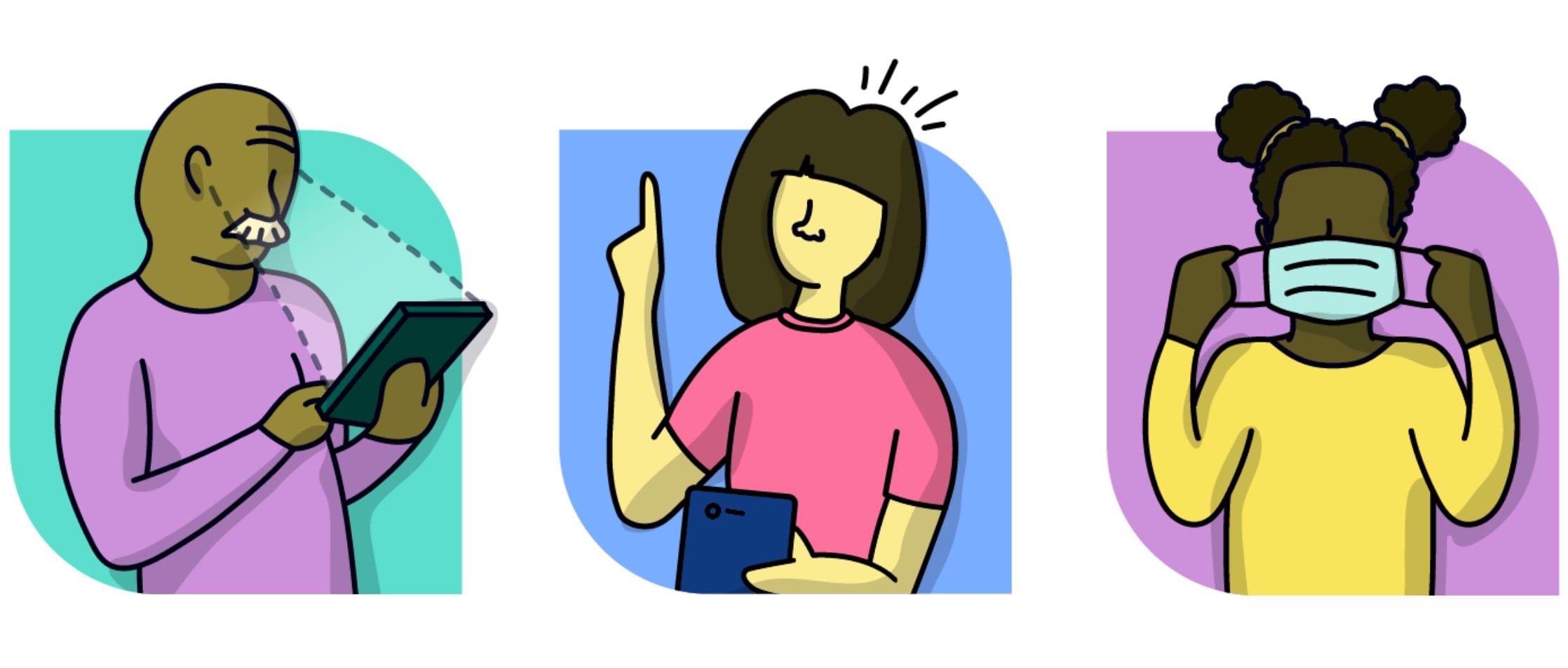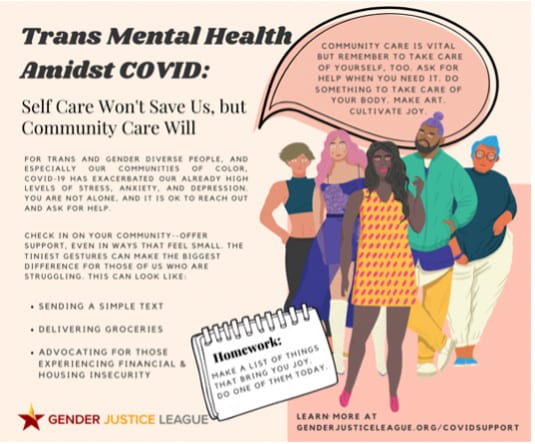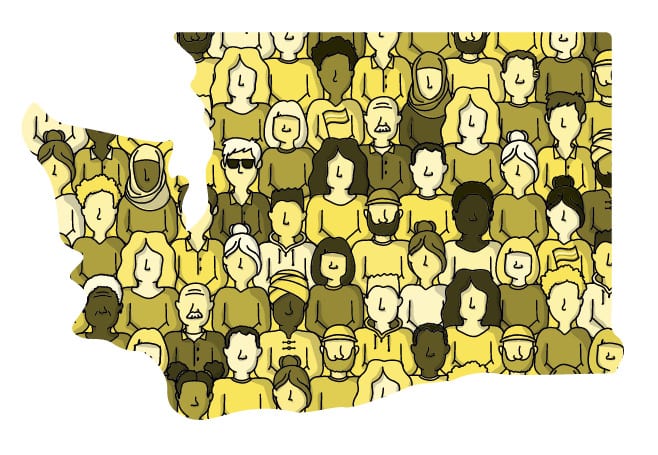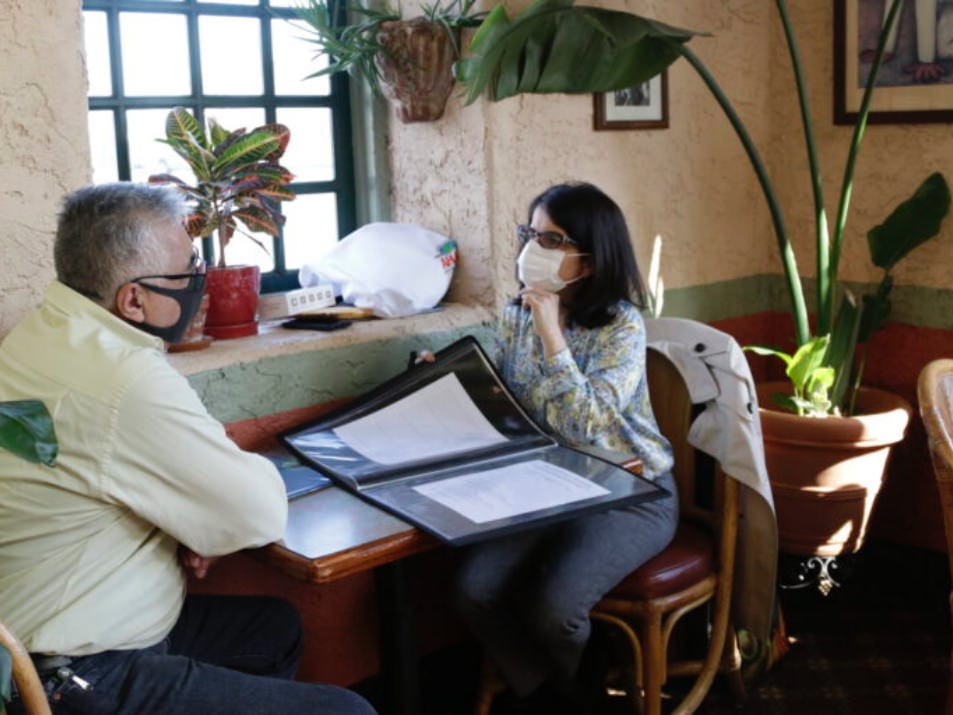Equity-based COVID-19 prevention

The COVID-19 pandemic underscored a long-standing reality: Americans experience public health outcomes, like so many things in the United States, unequally – depending on access to quality care and the effects of systemic inequities. With distrust of institutions at an all-time high going into the pandemic, the Washington State Department of Health (DOH) recognized that a “mile-wide” COVID-19 prevention campaign—designed to reach as many Washingtonians as possible—needed a complementary “mile-deep” strategy to reach priority communities with culturally and linguistically appropriate information.
DH helped DOH build this mile-deep strategy. We identified a statewide network of community-based organizations and coordinated with them to receive DOH funding, mobilize trusted message carriers in their communities, and produce creative content in their own voices.
Advertising
Branding
Digital + social
Public relations
Community-based
The challenge
No community is a monolith. Every community holds a diversity of viewpoints and lived experiences. For example, the Black community in King County has unique motivations and trusted local sources of information, as does the Black community in Spokane. With unique Black, African, LatinX, Asian, Pacific Islander, Slavic, LGBTQ+, Disability, and Multicultural communities across Washington, DOH had hundreds of audiences they wanted to reach, all requiring customized messaging from trusted local sources.
estimated special populations

The strategy
In partnership with DOH, DH sought to build up a network of community-based organizations who serve these unique groups and have established community trust. Through DOH funding, these organizations developed projects and called upon existing relationships with community faith and civic leaders, health care providers, media outlets, artists, and influencers to provide accurate in-language COVID-19 information as well as to tell culturally specific health care stories.
The goal
The goal: connect cultural narratives to positive public health behaviors, and ultimately encourage vaccination. Long term, investing in these organizations is meant to improve more than their capacity to promote COVID-19 prevention and vaccination; it is meant to improve their capacity to address community health broadly.

This was hands-on work. Compared to traditional media placements or contract management, this work depended on meaningful relationships, deep trust, active listening. It transcended transaction. Most importantly, even as we drove toward shared goals, this work centered on our community partners’ ideas. It was critical to respect their time and expertise, understanding that a “one-size-fits-all” approach across communities was bound to fail.
We blended relationship building with media relations, the creativity of design and messaging with the negotiation finesse of paid media strategy. The result is a powerful new community engagement and communications model.
Examples
Take a look at how a few of our community-based partners engaged their audiences in creative ways.
AHANA
AHANA is a Spokane-based non-profit that supports and promotes multi-ethnic and multicultural businesses and communities. AHANA has provided technical assistance and outreach to their members across Eastern Washington to deliver the “Spread Kindness” COVID-19 prevention campaign in multiple languages. As a community partner in this project, AHANA leveraged this regional campaign to create effective behavior change – especially with respect to COVID-19 safety measures and hygiene practices. AHANA’s goal was to provide multicultural businesses with resources and education to protect themselves, their staff, and their customers from COVID-19.
AHANA developed a COVID-19 Prevention Training Program and printed materials— including posters, buttons, and stickers—to provide hands-on training workshops.
Right: AHANA’s COVID-19 business outreach flyer
From January to March, AHANA presented their COVID-19 Prevention Training to a total of 119 businesses, surpassing their 112-business goal.
Photos from AHANA’s COVID-19 Prevention Training
AHANA learned that hands-on training, like demonstrating tools and providing tips, was effective and welcomed. Training sessions often ran longer than scheduled because people had so many questions and comments to share.
Gender Justice League
Gender Justice League is on a mission to empower all people; eliminate discrimination based on sex, gender identity, gender expression, and sexual orientation in Washington State; and ensure that trans and gender diverse people can live their lives safely, authentically, and freely. As a community partner, the Gender Justice League connected with their trans, non-binary, and allied followers across Washington to elevate their COVID-19 efforts in support of creating mutual aid networks and healthy communities for all.
On March 16, the Gender Justice League released a series of images bringing awareness to and providing tips for trans audiences navigating financial struggles amidst COVID-19.
PEOPLE REACHED
ENGAGEMENTS
REACTS
SHARES


This was followed up by the launch of their first video, “Trans Community Leaders on Asking for Help,” on March 18.
PEOPLE REACHED
REACTS
ENGAGEMENTS
SHARES
Building off the social media and video content, the Gender Justice League held two COVID-19 Q&A sessions. The first Q&A was about COVID-19 vaccines and featured trans healthcare providers. The second Q&A, entitled “Mental Healthcare for Trans Community During the Pandemic,” featured two therapists who work with trans and gender diverse people.
Building Community Immunity: A Live Q&A with Trans Healthcare Providers on COVID Vaccines
Mental Health, in THIS Economy?: A Live Q&A On Mental Wellbeing for Trans People Amidst COVID
In March, they also launched “Money Talks,” a series of images communicating the financial struggles trans and gender non-conforming folks have navigated throughout the COVID-19 pandemic.
Pacific Islander Community Association of Washington
PICA-WA was founded to serve as the community’s cultural hub and to advocate for the wellness of its members across the state. Through a coalition of three regional chapters and strategic partnerships with community-based, government, and public health organizations, PICA-WA works to see that all Pasifika people are thriving physically, culturally, socially, and spiritually. It was with this vision in mind that they launched their “I am Pasifika, I am vaccinated” campaign—an in-person and digital outreach campaign designed to educate, activate, and vaccinate Pacific Islanders across Washington.
Through its “I am Pasifika, I am Vaccinated” campaign and clinics, PICA-WA has vaccinated more than 1,000 community members and distributed over 450 commemorative t-shirts. The t-shirts were meant to act as “walking billboards” to encourage vaccination among community members.
PICA-WA also developed a series of short films called Pasifika Narratives which reached more than 20,000 community members. These films highlighted the community’s resilience and the importance of taking precautions to keep the community healthy during COVID-19.
PICA-WA shared this testimonial from a community elder:
I don’t know where else I would have gone to get my vaccine. I felt the love and reception from the PICA team and feel so proud to be Pasifika.

The results
This equity-based communications model put our community partners in the lead, helping to build out the infrastructure and resources they needed to engage their communities through trusted messengers. To date, DH has coordinated investment to over 175 such organizations across Washington, including in Black, African, LatinX, Asian, Pacific Islander, Slavic, LGBTQ+, Disability and Multicultural communities living in urban, suburban, and rural settings. This “mile-deep” effort has reached over 2.3 million of Washington’s 7.6 million residents.


























